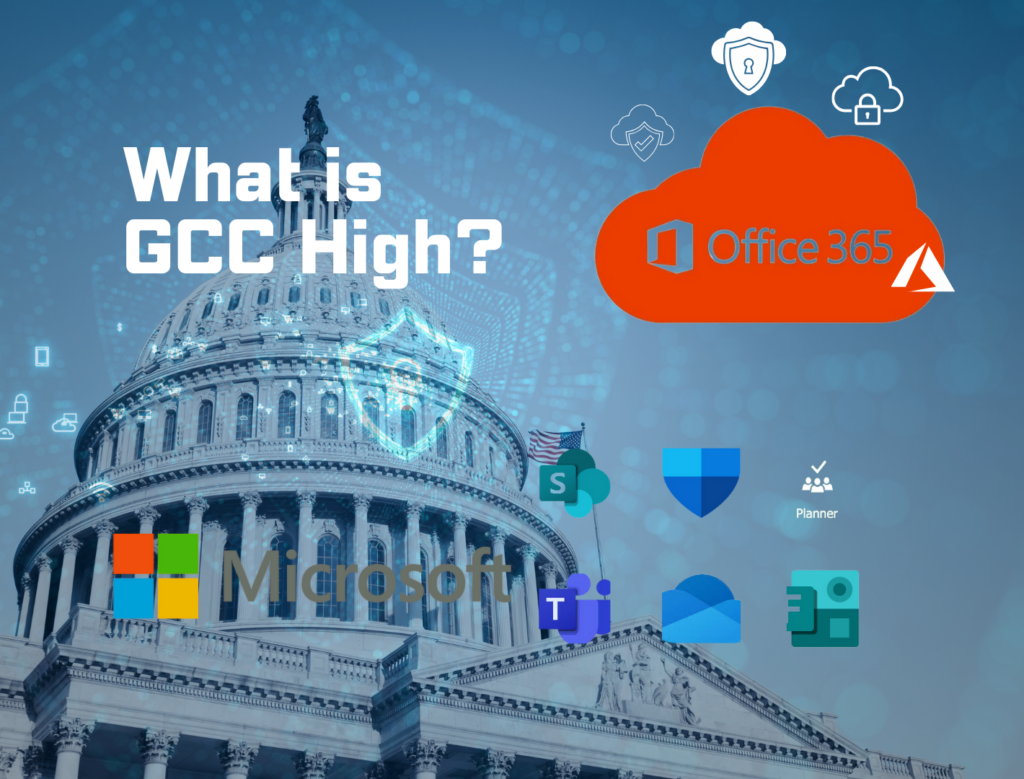How Software Development Companies Can Achieve ITAR Compliance
Software development firms engaged in U.S. defense projects face strict regulations, particularly the International Traffic in Arms Regulations (ITAR). Non-compliance can result in severe penalties and jeopardize national security. These firms often utilize powerful platforms like AWS, Azure, and GitHub. However, these platforms’ international scope presents unique challenges in maintaining ITAR compliance software development companies. Therefore, these companies must navigate these challenges carefully to ensure they meet all regulatory requirements while leveraging the robust infrastructure these platforms provide.
The Complexity of Global Platforms
ITAR compliance is a crucial aspect for software development companies working on U.S. defense projects. Platforms like AWS, Azure, and GitHub, while offering robust infrastructure, pose unique challenges due to their international architecture. Some of these challenges include:
- Geographical Data Storage: AWS and Azure store data across multiple geographical locations. This global distribution of data storage poses a significant risk when it comes to ITAR compliance, which mandates that data should only be accessible by U.S. persons. The international scope of these platforms can potentially lead to data being accessed from non-compliant locations.
- Multi-Tenancy: The situation is further complicated by the ‘multi-tenancy’ nature of these platforms. In a multi-tenant environment, multiple users share the same infrastructure and resources, increasing the risk of inadvertent data exposure. Despite robust security measures, the risk of data leakage remains a concern.
- Public Repositories on GitHub: GitHub adds another layer of complexity to ITAR compliance. Public repositories on GitHub are globally accessible, making them susceptible to unauthorized international access. While private repositories offer more control over access, public repositories can be viewed by anyone, including non-U.S. persons.
- Shared Responsibility Model: It’s worth noting that while these platforms provide tools and infrastructure designed to support ITAR compliance software development companies, the individual organizations have the ultimate responsibility of ensuring compliance. They must implement proper controls and practices when using these platforms.
A Multi-Pronged Approach
Transition to U.S.-only data centers
To achieve ITAR compliance, software development companies should migrate their ITAR-controlled data and applications to ITAR-compliant cloud tenants. Such tenants exclusively work for the U.S. government agencies and their contractors. Azure Gov and Amazon AWS GovCloud (US) are some of cloud tenants compliant with ITAR data sovereignty and access requirements. By migrating to these cloud environments, software development companies ensure ITAR-controlled data is physically located and logically processed only within the U.S. borders. This means that only U.S. persons can access code, files, and other ITAR-controlled technical data.
Deploy enhanced security protocols
Software development companies working on projects under ITAR should implement stringent security controls and layers. Such controls are necessary to ensure ITAR-controlled applications and data are protected from malicious or unauthorized access. ITAR-controlled data should be encrypted in transit using IPSec and TLS and at rest using Azure Key Vault or AWS KMS. Its worth noting that these solutions are FIPS 140-2 compliant, a key ITAR compliance requirement for technical data. For instance, AWS KMS HSMs are certified FIPS 140-2 at security level 2. On the other hand, Azure Key Vault is FIPS 140-2 compliant at level 2 or level 3 for software-protected and HSM-protected keys respectively.
Continuous monitoring
Software development companies should limit access to sensitive data by time, location, and unauthorized individuals. Activity monitoring in cloud environments is key to ITAR compliance. Role-based access controls (RBAC) can be used to grant the minimum necessary permissions to the users based on their roles and responsibilities. These companies can also use API rate limiting to enforce a limit to the number of transactions per second that developers and testers can consume.
Companies on AWS tenants can use AWS’s identity federation, key rotation, and access control tools to limit users’ API calls. Software development companies on Azure Government tenants should use Microsoft Entra ID, formerly Azure AD to ensure only authorized processes and users access ITAR-controlled applications and data. They can use monitoring tools like AWS CloudTrail and Azure Monitor to collect and analyze the logs and metrics related to the data and applications, including who accessed what, where, when, and how. These tools can also generate alerts and reports for compliance audits.
Use GitHub Enterprise Server
Software companies working on projects under jurisdiction of the ITAR should ensure their repositories are private. Thus, the repositories shouldn’t be accessible or visible to the public. Unfortunately, the cloud-hosted service at Github.com is not designed to host applications or data subject to ITAR. This is because it does not have the ability of restricting repository access by country. Therefore, software development companies working on ITAR-controlled data or applications should consider using GitHub Enterprise Server. Software development companies can run this self-hosted virtual appliance within their own virtual private cloud or datacenter. This offering is compliant with Supplement No. 1 to part 740 of the EAR which contains among other things, the proscribed countries under ITAR. Remember, ITAR compliance is an ongoing endeavor. Thus, software development companies should ensure that all measures are in place to protect the ITAR-controlled applications and data.
Update internal policies and train the workforce
Software development companies should update their internal procedures and policies to align with the ITAR compliance requirements and best practices. These policies should entail topics like data classification, handling, retention, disposal and data breach response. User authentication and authorization policies should be in place to prevent unauthorized access to ITAR-controlled data and programs. Additionally, the companies should train their workforce on these policies and on how to use platforms and tools that are involved in ITAR compliance. This training should also include examples and scenarios of ITAR violations and how to best avoid them. The training should be conducted regularly and updated as needed.
Ensuring Feasibility
Dedicated U.S.-Only Cloud Environments
AWS and Azure offer U.S.-only environments like GovCloud and Azure Government. However, these can be more expensive, requiring a cost-benefit analysis.
Security and Auditing Enhancements
- Data Encryption: Strong encryption should be employed for data at rest, in transit, and during processing.
- Role-Based Access Control (RBAC): Strict RBAC should be put in place to ensure that only U.S. persons can access sensitive data.
- Monitoring Tools: Services such as AWS CloudTrail and Azure Monitor should be used for audit trails.
GitHub Compliance Measures
Opt for enterprise-level, private GitHub repositories and use advanced security features like branch protection and required status checks. Routine audits should be performed to ensure compliance.
Making Compliance Practical
- Migration Phase: Utilize AWS Database Migration Service or Azure Migrate to shift to U.S.-only data centers.
- Policy and Training: Update internal policies to align with ITAR compliance, and train the workforce accordingly.
- Compliance Automation: Use Infrastructure as Code (IaC) tools to maintain compliance settings automatically.
Your Next Steps
ITAR compliance isn’t merely a regulatory requirement but also a competitive advantage. To safeguard against penalties and gain an edge in the market, companies should:
- Evaluate their ITAR compliance readiness immediately.
- Consider moving to dedicated U.S.-only cloud environments.
- Revisit and fortify their GitHub settings.
By adopting these measures, software development companies can ensure ITAR compliance, mitigate risks, and position themselves for success in the competitive and highly regulated marketplace.
Share in Social Media
See More Case Studies

Securing Defense Contracts: A DFARS 252.204-7012 Compliance Case Study
Discover how Cleared Systems helped a Federal Contractor successfully achieve DFARS 252.204-7012 compliance by strengthening its cybersecurity posture, giving it a competitive edge when bidding for DoD Contracts.

What is GCC High? For ITAR & CMMC 2.0
Microsoft 365 Government Community Cloud (GCC) High is a specialized cloud solution tailored for U.S. federal, state, local, tribal, and territorial government organizations, as well as for contractors who hold or process data subject to specific security regulations. In this article, we will explore the features, benefits, and differences between Microsoft 365 GCC High and other Office 365 offerings.

Is AutoCAD ITAR Compliant? A Comprehensive Guide for Defense Manufacturers
Defense contractors and manufacturers working with sensitive military technologies face a critical question when selecting computer-aided design software: Is AutoCAD ITAR compliant? This question becomes

How to Get Help in Windows: Guide to Security and Compliance Support
In today’s digital landscape, ensuring your computer systems are secure and compliant with industry regulations is essential for both businesses and individuals. Windows, as one

Microsoft Copilot for GCC High: Enhancing Security and Compliance
In today’s fast-evolving digital landscape, organizations that handle sensitive data, particularly those in government sectors or defense contractors, face growing pressure to maintain strict security
Partner with Us for Compliance & Protection
We’re happy to answer any questions you may have and help you determine which of our services best fit your needs.
Your benefits:
- Client-oriented
- Security
- Compliance
- Peace of mind
- Efficiency
- Trust
What happens next?
Schedule an initial meeting
Arrange a discovery and assessment call
Tailor a proposal and solution
